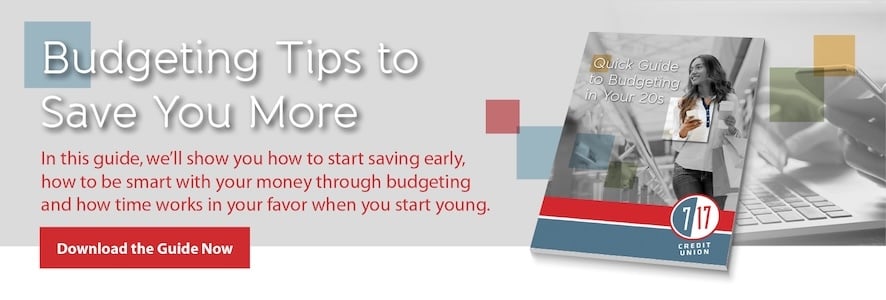- 7 17 Staff
Riding the Wave: How Interest Rates Impact Your Finances

Inflation and rising interest rates can both create a lot of financial stress and put strain on your financial planning. Understanding how interest rates impact your finances and how to manage your debts throughout these times is essential.
How Interest Rates Impact Finances
First, let’s look at the basics of interest rates and how they work. The supply and demand for credit and loans influence interest rates; in turn, interest rates are determined by members of the Federal Reserve Board and Federal Reserve Bank, known as the Federal Open Market Committee (FOMC).
The FOMC meets several times a year to determine interest rates. The purpose of this is to ensure economic stability and liquidity, but unfortunately, it can also cause disappointment in homebuyers, investors and those who have a lot of debt.
Now let’s take a closer look at how interest rates impact three key areas:
Everyday Finances
The Federal Reserve System’s purpose is to maintain a low inflation rate, which it does by adjusting interest rates. Increasing interest rates helps to control inflation; however, it makes it more expensive to purchase large items on credit, such as a house, car, large appliances or furniture.
Mortgage Rates
If you have a fixed-rate mortgage, changes in interest rates have no impact on your mortgage’s interest rate or your payments. However, if you have an adjustable-rate mortgage, your mortgage’s interest rate and your payments are going to fluctuate. For new homebuyers, a new fixed-rate mortgage could be more expensive when interest rates are high.
Retirement Accounts
How interest rates impact your retirement accounts depends on several things, such as age and your target retirement date. It’s a good idea to keep an eye on your retirement accounts at any age, but it’s important to not make drastic decisions when you see interest rates fluctuate. Take the long-term outlook and be patient; use this time to review your investments and asset allocation. Some strategies you could implement include considering stocks that aren’t sensitive to rate changes and shifting funds from a stock to a certificate of deposit (CD).
How To Manage Debts During Times of High-Interest Rates
Managing debt is challenging, even during the best of times. Add interest rate hikes to the mix and it can feel insurmountable. Here’s how to manage your debts:
Know Your Credit Score
Knowing your credit history and debt portfolio will help you develop an understanding of how interest rates will apply to your circumstances and will also help you create a plan going forward.
Regularly checking your credit score and history will provide you with valuable information such as how to strengthen your credit score and potentially minimize the increasing cost of borrowing. It will also alert you to errors and potential fraud.
Make a List of Your Debts
This is a simple step, but it helps you visualize your debts and come up with a plan. Include all of your debts (credit cards, student loans, personal loans and any other debts) in one list with your balance, current interest rate and whether it’s a fixed or variable interest rate. Staying on top of this information will help you make informed decisions about adjustments to your paydown strategy.
Come up With a Strategy
Two things come in handy for this step: your list of debts and a realistic budget. Your budget will help you determine how much you can devote to paying down your debts. (Don’t have a budget? Check out our guide to get started.) Here are a few guidelines to help you get started with a debt payoff strategy:
- Limit discretionary spending, but make sure you’re treating yourself from time to time so it doesn’t feel like you’re punishing yourself.
- Choose just one of your debts to pay off at a time to keep things manageable.
- Prioritize either paying off the lowest debt first and moving on to the next, the debt with the highest interest rate or a debt with a variable interest rate.
Use Credit Cards Wisely
You may feel like you should stop using all of your credit cards until you have your debts paid off, but it’s important to use them wisely and occasionally make small purchases on them to keep them active. Keep in mind that your credit cards, utilization and how long you’ve had the cards open all impact your credit score. You don’t want an account to close because of disuse.
To help you leverage your credit cards while avoiding more debt, put a small purchase on the card and then immediately pay it off.
Start Building Your Financial Plan
A realistic budget is key to financial planning and making it through times of inflation and high interest rates. Find out what you need to know to build a realistic budget that works for you with our free guide, Budgeting for Beginners: A Quick Guide for Budgeting in Your Twenties.
